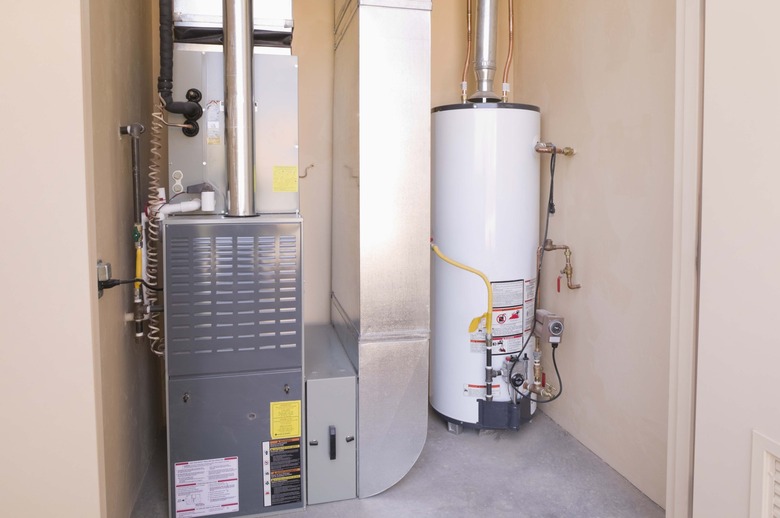How To Troubleshoot An Overheating Furnace
We may receive a commission on purchases made from links.
So you woke up this morning and your house was cold. Or possibly you woke up in the middle of the night with a chill. Do you immediately get on the phone and call your HVAC pro? You can try to troubleshoot and diagnose the issue yourself before you make that call. Overheating is often related to problems with airflow or fuel flow, and the long-term effects of overheating can be expensive and even dangerous.
There's No Heat
There's No Heat
When a furnace overheats, there are safeties that shut off the burner, resulting in no heat. These are called limits, and exactly as the name implies, they limit the temperature in the furnace. If this happens when your furnace gets too hot or overheated, the limit needs to be reset manually. This is a good time to have an HVAC pro take a look at the cause and verify no damage has occurred.
An Overheating Furnace Can Be Caused by Several Things
Keeping it simple, start with airflow. If you hear the fan running, you can pretty much rule out anything to do with the fan motor. If there's a fan belt, be sure that it's in good shape and not slipping. If you hear a squeal when the fan starts, this is a good indication that the belt is slipping. Next, ask yourself when was the last time the air filter was changed. These are simple things that can be checked before a call to a service company.
Another issue that may get overlooked involves the air vents, or registers, throughout the home. Vents on the floor can easily be covered up by a rug or couch, so make sure they're free from obstructions.
Furnace Not Keeping Up
Furnace Not Keeping Up
Unlike the furnace just shutting down and needing to be manually reset, some furnaces reset automatically when the temperature drops inside the furnace. This can cause the furnace to cycle on and off, and much like in a no-heat situation, airflow is typically the culprit. The difference is the furnace won't keep up with the heat demand. This can be a little more to deal with. First, ask yourself how long this has been going on. If it's something new, take a look at the air filter and vents. If this is something that has been going on for a while, it can be a little more involved.
Is Airflow the Issue?
Is Airflow the Issue?
When a furnace is installed, the HVAC pro should ensure that the airflow is good. If the ductwork is too small for the furnace, proper airflow cannot be achieved. This in itself will cause the furnace to cycle on and off. Another airflow issue can be fan speed. Older furnaces use fan belts that are adjusted to give proper airflow. Newer furnaces have multispeed fans that can be adjusted to optimize airflow.
Is Fuel Flow the Culprit?
Is Fuel Flow the Culprit?
Once the proper airflow is established, fuel needs to be considered. Too much fuel can not only overheat the furnace but also increase energy consumption. This symptom is usually the cause of the burner cycling on and off; meanwhile, the fan continues to run to cool down the furnace. After the furnace cools down, it may start the heating process again. Depending on your fuel type, this is a pretty easy fix for your HVAC pro. For a gas furnace, the pro can make adjustments to the gas regulator. For an oil furnace, adjusting fuel flow is a matter of sizing the oil nozzle to match the demand of the system.
Consequences of an Overheating Furnace
Consequences of an Overheating Furnace
If your furnace continuously overheats or cycles on and off, negative things can happen inside the furnace. One of the most detrimental things involves the heat exchanger. Inside the heat exchanger is where the combustion process takes place, and overheating can warp or, worse, crack the heat exchanger. A cracked heat exchanger is one of the ways carbon monoxide gets into your home.
Another possible issue is that the furnace cycling on and off puts undue stress on system components, which can result in the need for a motor replacement and higher energy bills. Simply put, don't ignore the symptoms.
In short, troubleshooting an overheating furnace is a matter of checking airflow or having your HVAC pro adjust your fuel flow and check the heat exchanger, especially if this has been going on for some time.
